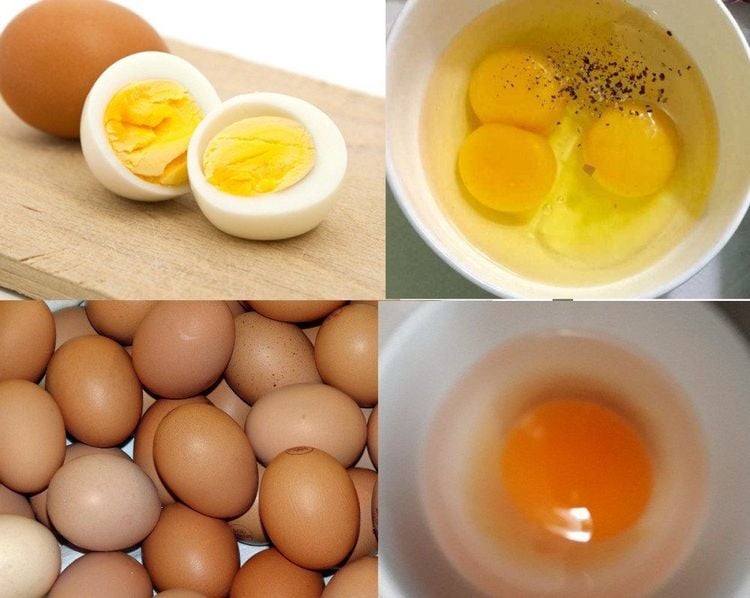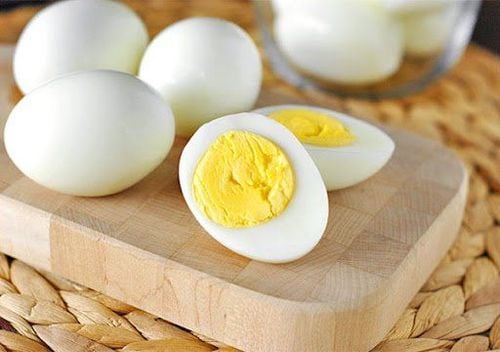This is an automatically translated article.
Chicken eggs, duck eggs are familiar foods, which can be processed in a variety of dishes in family meals. Storing eggs in the refrigerator is a habit of many housewives. However, is it good to keep eggs in the refrigerator?1. How does egg consumption affect health?
A study of the health effects of eggs in about 40,000 men and more than 80,000 women found that: one egg a day did not increase the risk of cardiovascular diseases in people have normal health.
Previous opinions suggested that because of the high cholesterol content, eating eggs will increase the risk of cardiovascular diseases. However, the results of studies in many people show that the amount of cholesterol in each egg has little effect on blood levels of total cholesterol as well as the bad type of cholesterol, LDL.
Report made in 2008 after a study of many doctors has supported the safe consumption of one egg per day for heart health. However, consuming more than that increases the risk factors for heart failure later in life.

Người mắc bệnh rối loạn chuyển hóa cholesterol máu không nên ăn nhiều trứng
The amount of cholesterol in egg yolk is relatively high, so in patients with a history of metabolic disorders of blood cholesterol that have not been completely controlled, caution should be taken when consuming too much egg yolk. Instead, the above subjects or patients with diabetes should choose instead to use dishes made from egg whites.
Some other studies around the world, in people who consume one or more eggs per day will increase the risk of heart disease in men and diabetes in women. Therefore, in patients with cardiovascular disease or diabetes should consume up to 3 eggs (3 egg yolks) per week.
In addition, to evaluate the association between egg consumption and cardiovascular health, we must examine the health effects of eggs with egg substitutes in specific meals.
Breakfast examples: Eggs are considered a better choice than refined sugary cereals or breads. However, we still have other healthier options than eggs, such as a bowl of oats with nuts, berries will bring a healthier cardiovascular system than consuming eggs alone.
A diet that includes whole grains and fresh fruits reduces the risk of heart disease. When it comes to daily protein requirements, plant-based protein sources found in nuts and seeds are effective in reducing the risk of death in general and death from cardiovascular disease in particular, especially when compared with people who don't. Consume more eggs and red meat.

Chế độ ăn có ngũ cốc nguyên hạt giúp làm giảm nguy cơ mắc bệnh tim
Nutritional ingredients in eggs are rich in the following substances:
Cholesterol; Protein; Choline; Biotin - Vitamin B7; Vitamin A; Antioxidants (lutein and zeaxanthin).
2. Is it good to keep eggs in the fridge?
The first priority when preserving and using raw eggs is to ensure food safety. Infected chickens when laying eggs can create conditions for Salmonella bacteria to attack the inside of eggs at the immature shell stage. In addition, Salmonella can also live on eggshells.
Pay attention to the shelf life of eggs: Under normal conditions, eggs are best used in 4-6 weeks after being laid by chickens. Therefore, when buying eggs, consider carefully and do not choose boxes of cracked eggs because the risk of infection is very high. If a cracked egg is found, the whole egg box should be discarded to be safe.
Store eggs in a box at a low temperature, below 4.4 degrees Celsius or keep eggs in the refrigerator in the coldest compartment. Limit the storage of eggs in the refrigerator in a place where the temperature is easy to change, unstable like at the door of the refrigerator.
Therefore, the question of whether it is good to keep eggs in the refrigerator, the answer is yes, eggs will be preserved longer if stored at the right temperature. Low temperatures don't extend the shelf life of eggs, but changing temperatures can make them more perishable.
Therefore, we should keep eggs in the area behind the refrigerator, where the temperature changes least. Besides, keeping eggs in the refrigerator is the best way to control bacteria.
Before processing, eggs are most effective when at room temperature, so it is advisable to note when to take eggs out of the refrigerator to cook.

Đặt trứng ở cánh cửa tủ lạnh vi khuẩn dễ dàng xâm nhập hơn ở khu vực phía sau tủ lạnh
3. Note when processing eggs
To ensure safety when processing complications, you need to pay attention to the following issues:
To prevent and destroy pathogens, eggs should be cooked until the whites and yolks solidify. Eggs need to be cooked to a temperature of at least 70 degrees Celsius. Some dishes or recipes require the use of raw or moderately cooked eggs, we should choose egg cartons that have been heat-pasteurized. For cooked eggs or egg dishes, do not store at room temperature for more than 2 hours. Wash hands with soap and water when in direct contact with raw eggs. Another caveat is that brown-shelled eggs are no more nutritious than white-shelled eggs. The color and size of the egg depends on the breed of the bird, especially the egg color is very diverse from white, cream, brown or spotty... In addition, the nutritional value of the yolk does not depend on the egg color. color.
Hope the information in the above article will help readers know the nutritional value of eggs as well as how to store them in the refrigerator effectively.
Please dial HOTLINE for more information or register for an appointment HERE. Download MyVinmec app to make appointments faster and to manage your bookings easily.
References: hsph.harvard.edu, healthline.com












